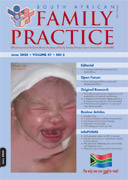Review: Immunity and the infant GI-tract.
Abstract
The intestine is the largest organ in the immune system of the body, and as such is the location for the majority of lymphocytes and other immune effector cells. The intestine is exposed to vast quantities of dietary and microbial foreign bodies (pathogens), which, in some instances, are potentially lethal. The development of normal immune function of the intestine is therefore vital for survival, and is dependent on appropriate antigen exposure and processing, and an intact intestinal barrier. In early life, maternal colostrums and milk can significantly augment resistance to enteric infections. The mechanisms of enhancing disease resistance are thought to be passive, involving a direct support of anti-microbial factors, and active, by promoting the development of specific immune functions. A tolerance response to dietary and non-invasive antigens is generally induced in the gut. However, it must also be able to mount an adequate immune response to ensure clearance of foreign antigens. Regulation of tolerance and active immune responses are critical to health, and failure to regulate these responses can lead to recurrent infections, inflammatory diseases and allergies. The education of the immune system in early life is thought to be critical in minimising the occurrence of these immunebased disorders. (SA Fam Pract 2005;47(5): 56-58)
Published
2005-06-01
Issue
Section
Review Articles
By submitting manuscripts to SAFP, authors of original articles are assigning copyright to the South African Academy of Family Physicians. Copyright of review articles are assigned to the Publisher, Medpharm Publications (Pty) Ltd, unless otherwise specified. Authors may use their own work after publication without written permission, provided they acknowledge the original source. Individuals and academic institutions may freely copy and distribute articles published in SAFP for educational and research purposes without obtaining permission.

